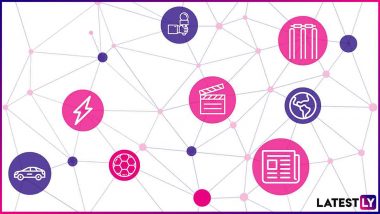BusinessWire India
New Delhi [India], September 22: The Confederation of Indian Industry (CII) organised the 4th International Conference & Exhibition on Clean Energy, bringing together thought leaders, policymakers, and experts from the clean energy sector. The event revolved around the Indian government’s ambitious goal of achieving complete net-zero emissions by 2070.
Also Read | India Suffer 0-4 Defeat Against Thailand in AFC U-17 Women's Asian Cup 2023 Qualifiers Second Round.
The two-day conference comprised discussions around ‘Global Champions for Advancing Clean Energy Innovation and Manufacturing’. ICP Keshari, Former Additional Chief Secretary, Government of Madhya Pradesh, participated in a panel discussion around ‘Energy Storage System: The Backbone of Renewable Energy’ on behalf of Empower India, a leading public policy think-tank working to create positive changes through equitable policymaking. The panel also comprised eminent industry experts such as Ms. Mani Khurana, Senior Energy Specialist, World Bank, JK Jeethani, Senior Director and Scientist, Ministry of New and Renewable Energy, and Gary Chen, International Business Development Director, Envision Energy, among others.
Keshari said, "In our pursuit of a sustainable energy future, we must harness the power of innovation and inclusivity. By supporting a multifaceted development of the energy storage system (ESS) and recognizing that Battery Storage is the linchpin for a renewable energy transition, we can ensure equitable access for all and overcome challenges of cost and pollution concerns.” He also said, “Small-scale adoption, coupled with incentives and net metering, holds the key to a brighter, cleaner tomorrow. We know that in the months of October and November, parts of Delhi go without diesel generator (DG) sets which creates problems for businesses, therefore, storage batteries are an apt solution for these challenges."
Experts at the conference also emphasised how battery storage systems hold the promise of ensuring a stable grid by providing a consistent supply of clean energy. While high unit costs currently pose challenges, the government has initiated tenders to expand the market for energy storage systems, with the aim of reducing prices. Keshari also noted the increasing demand for 24x7 reliability in large buildings, leading to the widespread adoption of lithium-ion battery (LiB) energy storage systems (BESS) as the most reliable, safe, and efficient option. These BESS solutions are especially crucial in urban areas where diesel generators (DG) have been banned due to pollution concerns. Small-scale battery storage applications, supported by the PLI and incentives, offer significant economic and environmental benefits, particularly in urban areas where DGs were previously prevalent.
This underscores the imperative of implementing cost-effective strategies to strengthen battery storage systems. As we transition from fossil fuels to renewable energy, the significance of battery storage cannot be overstated. Conventional coal-based electricity systems, marked by their polluting nature, present environmental challenges. With the global demand for electricity projected to rise from 18% to 24%, renewable energy is poised to meet a substantial portion of this growing need.
(ADVERTORIAL DISCLAIMER: The above press release has been provided by BusinessWire India. ANI will not be responsible in any way for the content of the same)
(The above story is verified and authored by ANI staff, ANI is South Asia's leading multimedia news agency with over 100 bureaus in India, South Asia and across the globe. ANI brings the latest news on Politics and Current Affairs in India & around the World, Sports, Health, Fitness, Entertainment, & News. The views appearing in the above post do not reflect the opinions of LatestLY)













 Quickly
Quickly


